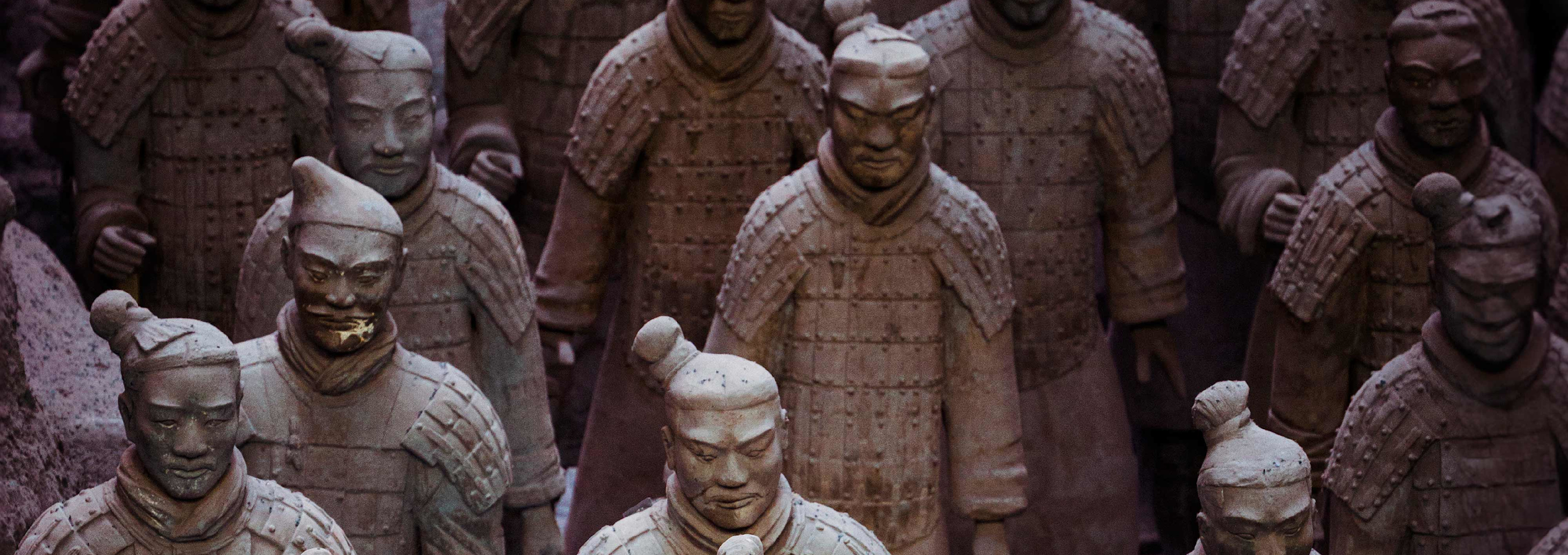

Japanification of China?
Could Japan’s three decades of deflation and stagnation since 1990 be echoed by a similar economic funk in China? Robeco’s Asia expert and portfolio manager Arnout van Rijn explains why the China experience can be different.
まとめ
- Property market woes serious, but not forcing corporate deleveraging
- China’s growth potential is greater than Japan’s was in the 1990s
- Chinese corporate sector has more focus on RoE than Japan used to
Japan’s economy in the late 1980s was characterized by rapid growth and high levels of investment and the country reached a weight of 40% in the MSCI World Index before the bubble burst. It then took the Nikkei 225 nearly 35 years to surpass its December 1989 high. The bursting of the asset price bubble brought about economic stagnation and deflation. Land prices bottomed out only in 2005 and the Japanese stock market didn’t even hit rock bottom until 2012.
Is history repeating itself in China now? Some parallels are becoming increasingly apparent. In 2017, China was projected to become nearly 50% of the global emerging markets benchmark as more and more of the vibrant A-share market became accessible to foreign investors. The market lost its mojo though after the government clamped down on the all too powerful position of the internet giants. China now has ‘just’ a 24% weight in the MSCI Emerging Markets Index.
Can China regain its momentum or will it go the way of Japan with a lost generation for the economy and investors? Are we now seeing a Japanification of China?
In 1980s Japan, companies used property and land to lever up and buy more commercial property or expand into other economically unviable projects. When the bubble collapsed, the corporates and the banks carried the weight of the downturn. In contrast the problems In China are in residential property, not in commercial. Many Chinese families own several properties as an investment or retirement nest egg, hoping for capital gains.
China was already aware of the risks of this activity and acted to avoid a bubble developing. Hence, prices never went up as much as during the land speculation frenzy in Japan in the 1980s. Average residential sales prices per square meter rose 7.3% annually since 2007, well below the increase in annual nominal GDP of about 12% over that same period. In Tokyo, home prices grew 13% annually, well above nominal GDP growth of about 8% in the 1980s.
Figure 1: China home prices: Never really bubbly

Source: CEIC, National Bureau of Statistics, Nomura Research Institute.
Demographics, debt, and deflation
Japan’s population peaked twenty years after the bubble burst in 2010 at 128 million and stood at 123 million in 2023. In comparison, China’s population peaked in 2021 at 1.42 billion and has shrunk slowly since then. The demographic challenge could keep the housing market subdued, as demand is likely to recede. Subsequent deflation increases the real value of debt, necessitating policy to create inflation to keep this manageable. If there ever was a time for easy monetary policy in China, it is now. Japan is generally seen as having erred in keeping monetary policy tight for too long during the early 1990s.
China has a better starting position to deal with leverage and excess capacity than Japan had, since it has more of a growth runway ahead than Japan did in the 1990s. According to IMF data, per capita income in Japan at the end of its economic miracle was 120% that of the US, while in China it stands at 16% now. Economic growth at about 5%, driven by productivity gains, means China can grow out of its problems more easily. A caveat here would be that policy-making in China is deemed to have become less pragmatic and more dogmatic which may result in suboptimal decisions.
CNY is not undervalued
US politicians claim the yuan is cheap today, but real effective exchange rate calculations show it is actually a little expensive. Even at today’s rate, the country is super-competitive and generates a trade surplus of about USD 1 trillion annually. China will not have to fight imported deflation from a rising currency. Its interest will be best served by currency stability and the yuan is unlikely to move a lot over the next five years.
ROE and equities
For long-term equity investors, return on equity (RoE) is a crucial yardstick. Considering Chinese companies’ balance sheets probably won’t be affected by the fall in property prices, they are not expected to deleverage like Japan’s corporate sector did in the 1990s. There is a risk though that many industrial companies have overinvested and will need to deal with lower margins and potential write-downs of obsolete factories in the next five years. This could cause Chinese RoE to fall, causing lackluster equity market performance. However, the gearing of Chinese corporates is average by international standards and balance sheets do not need repair via equity issuance. Many private companies have announced buybacks in response to the weakness in share prices: clear capitalist behavior that equity investors will appreciate.
Figure 2: Better RoEs in China than in Japan

Source: MSCI, Morgan Stanley research.
最新のインサイトを受け取る
投資に関する最新情報や専門家の分析を盛り込んだニュースレター(英文)を定期的にお届けします。
Figure 3: China vs Japan net debt/EBITDA (ex-financials)

Source: MSCI, Morgan Stanley research.
Conclusion
There are three main reasons to assume China will not face the ordeal that Japan lived through. First, Chinese policy makers have been able to contain property price increases to a more manageable level. There is far less leverage in the China property market than there was in Japan.
Second, China can still grow its way out of the problem as there is plenty of room for productivity gains. Third, Chinese corporates so far seem to better understand the cost of equity and also have not been shell-shocked into a rapid de-leveraging cycle.
Chinese companies must now demonstrate they can sustain RoE in the face of overcapacity. If they can, the equity market is undervalued. Conversely, Japanese RoE is on a decisive uptrend, and if they can reach the old Chinese levels, the equity market outlook for Japan will also be bright.
This article is an excerpt of a special topic in our five-year outlook.

Webinar: 5-Year Expected Returns 2025-2029
Our five-year outlook on market opportunities and risks.
重要事項
当資料は情報提供を目的として、Robeco Institutional Asset Management B.V.が作成した英文資料、もしくはその英文資料をロベコ・ジャパン株式会社が翻訳したものです。資料中の個別の金融商品の売買の勧誘や推奨等を目的とするものではありません。記載された情報は十分信頼できるものであると考えておりますが、その正確性、完全性を保証するものではありません。意見や見通しはあくまで作成日における弊社の判断に基づくものであり、今後予告なしに変更されることがあります。運用状況、市場動向、意見等は、過去の一時点あるいは過去の一定期間についてのものであり、過去の実績は将来の運用成果を保証または示唆するものではありません。また、記載された投資方針・戦略等は全ての投資家の皆様に適合するとは限りません。当資料は法律、税務、会計面での助言の提供を意図するものではありません。 ご契約に際しては、必要に応じ専門家にご相談の上、最終的なご判断はお客様ご自身でなさるようお願い致します。 運用を行う資産の評価額は、組入有価証券等の価格、金融市場の相場や金利等の変動、及び組入有価証券の発行体の財務状況による信用力等の影響を受けて変動します。また、外貨建資産に投資する場合は為替変動の影響も受けます。運用によって生じた損益は、全て投資家の皆様に帰属します。したがって投資元本や一定の運用成果が保証されているものではなく、投資元本を上回る損失を被ることがあります。弊社が行う金融商品取引業に係る手数料または報酬は、締結される契約の種類や契約資産額により異なるため、当資料において記載せず別途ご提示させて頂く場合があります。具体的な手数料または報酬の金額・計算方法につきましては弊社担当者へお問合せください。 当資料及び記載されている情報、商品に関する権利は弊社に帰属します。したがって、弊社の書面による同意なくしてその全部もしくは一部を複製またはその他の方法で配布することはご遠慮ください。 商号等: ロベコ・ジャパン株式会社 金融商品取引業者 関東財務局長(金商)第2780号 加入協会: 一般社団法人 日本投資顧問業協会























